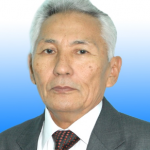Department of Plant Quarantine
Department Direction
Compliance with and promotion of measures aimed at protecting the country’s plant resources from importation and preventing the spread of quarantine objects and other especially dangerous plant pests established in Kazakhstan.
The mission is
Control of the spread of quarantine pests: pathogens, pests and weeds.
Strategic goal is
- Participation in international research projects and seminars on plant quarantine;
- Methodological support of activities using modern agro technologies for monitoring, detailed accounting and remote methods using GIS technologies, global positioning systems (GPS, GLONASS) and other computer programs;
- Development and implementation of various forms of forecasting quarantine organisms;
- Strengthening international scientific relations and integration of the national system of phytosanitary monitoring of quarantine organisms;
- Participation in the process of development, submission of proposals and adoption of international standards for phytosanitary measures, taking into account Kazakhstani interests;
- Timely provision of scientific and methodological material for the diagnosis and identification of quarantine pests;
- Using world experience and gaining practical skills in applying the latest methods for detecting and identifying pests, as well as methods for combating them, used in the advanced countries of the world;
- Exchange of experience in the field of plant quarantine, solving joint tasks to ensure quarantine phytosanitary security of the member states of the Customs Union, the CIS, member countries of the European Plant Protection Organization (EPPO);
- Modernization of laboratories, supply of necessary materials and equipment for express diagnostics of quarantine objects;
- Dissemination of knowledge in the field of plant quarantine between the subjects of quarantine (Quarantine Services, Terr Inspection, teachers of agricultural universities)
- Establishment of regulations allowing the institute to conduct a pest risk analysis (PRA) – (Study, research and evaluation of biological, scientific and economic data in order to identify quarantine objects).
Staff

Head of Plant Quarantine Department
Activity
1. Kazakh National Agrarian Research University – Student of the Kazakh Agrarian University
2. Postgraduate studies – Kazakh Research Institute of Fruit Growing and Viticulture
3. Researcher – Kazakh Research Institute of Plant Protection and Quarantine
4. Senior Researcher – Kazakh Research Institute of Plant Protection and Quarantine
5. Doctorate – Kazakh Research Institute of Plant Protection and Quarantine
6. Leading technical specialist – Syngenta Kazakhstan LLP. Technical Marketing Department
7. Leading Researcher – Kazakh Research Institute of Plant Protection and Quarantine
8. Head of Plant Quarantine Department – Kazakh Research Institute of Plant Protection and Quarantine
Scientific interests
Integrated garden protection system, organic gardening, fruit storage
Current projects
“Development of technology to ensure the safety of the quality of agricultural raw materials and processed products in order to reduce losses during various storage methods.”
“Development of technologies for organic agriculture for growing crops, taking into account the specifics of the regions, digitalization and exports.”
Main Publications
- Темрешев Избасар Исатаевич, Копжасаров Бакыт Кенжекожаевич, Бекназарова Зибаш Бердикуловна, Исина Жанна Магжановна, Сарбасова Айгуль. К вопросу расселения и биологии побеговьюна почкового Blastesthia turionella (Lepidoptera, Tortricidae) в Алматинской области. SCIENCE AND EDUCATION IN THE MODERN WORLD: CHALLENGES OF THE XXI CENTURY”. Нур-Султан, Казахстан, Сентябрь, 2021 Материалы IX Международной научно-практической конференции «Наука и образование в современном мире, Вызовы XXI века». Сельскохозяйственные науки.
- Защита плодовых культур в первой половине вегетации. Журнал «Мир Сингента», 2016 г. , №2 с. 17
- Защита плодовых культур во второй половине вегетации. Журнал «Мир Сингента», 2016 г. , №3 с. 24
- Койшибаев М.К., Каирова Г.Н., Исина Ж.М. Этиология плодовых гнилей на юго-востоке Казахстана Материалы международной конференции «Проблемы стабилизации и развития сельского хозяйства. Алматы, 2000, с 146-149
- Исина Ж.М. Испытание фунгицидов против монилиозна яблони. Материалы конференции «Научные основы развития сельского хозяйства». Ташкент, 2007. с. 183-184
 Leading Researcher
Leading Researcher
Activity
1963 – Scientific agronomist for plant protection; Diploma with honors P No. 699048 in the specialty plant protection; Kazakh State. Agricultural Institute, Alma-Ata.
1963-2000 MNS, SNS, VNS, head of the laboratory of phytosanitary diagnostics and forecasts, head of the department of entomology and forecasts; KazNIIR; settlement Rakhat, Almaty.
1972 – Candidate of biological sciences; Diploma of Candidate of Sciences MBA No. 016085/ Higher Attestation Commission of the Ministry of Higher and Secondary Specialized Education of the USSR, Moscow.
1977 – Senior Researcher; certificate of senior researcher SN No. 008081 / VAK under the Council of Ministers of the USSR, Moscow.
1996 – Doctor of Biological Sciences; Diploma of Doctor of Biological Sciences FD No. 0000431/ HAC under the Cabinet of Ministers of the Republic of Kazakhstan.
1996 – Associate Professor (part-time), State University. Abay, Almaty.
1998 – Corresponding Member of the Academy of Agricultural Sciences of the Republic of Kazakhstan; diploma No. 55 / Elected at the general meeting of academicians and corresponding members of the Academy.
2000-2006 – First Deputy. General Director of the RSE “Phytosanitary” of the Ministry of Agriculture of the Republic of Kazakhstan. Astana.
2000-2006 – Professor (part-time); Kaz. agricultural university. S. Seifullin, Astana.
2003 – Professor of the Kazakh Agrarian University named after. S. Seifullin; certificate No. 19 / Decision of the Academic Council of the Kazakh Agrarian University named after. S. Seifullin February 13, 2003
2006-2021 – Professor; KazATU named after S. Seifullin, Astana / Nur-Sultan.
2008 – Director (part-time), Center for the Promotion of Development and Competitiveness of the AIC at the International Academy “Turan-Profi”, Astana.
2013-2021 – Director (part-time); Scientific and Innovation Center for Phytosanitary Monitoring, Plant Protection and Quarantine / KazATU named after S. Seifullin, Astana / Nur-Sultan.
2015 – Full member – Academician of the Academy of Agricultural Sciences of the Republic of Kazakhstan; diploma No. 0175 / Elected at the general meeting of the members of the Academy on July 11, 2015
2021 – Chief Researcher; Kazakh Research Institute of Plant Protection and Quarantine named after Zhazken Zhyembaev, Almaty, Kultobe st. 1.
Scientific interests
Integrated garden protection system, organic gardening, fruit storage
Major Publications
1. Ажбенов В.К. Рекомендации по прогнозированию развития яровой пшеницы и серой
зерновой совки в степной зоне Северного Казахстана // Алма-Ата: «Кайнар», 1973. – 18 с.
2. Шек Г.Х., Ажбенов В.К., Евдокимов Н.Я., Новожилов К.В., Танский В.И., Шехурина В.И.
Рекомендации по учету, прогнозу и мерам борьбы с серой зерновой совкой. – М.: Колос, 1984.
– 32 с.
3. Ажбенов В.К. Серая зерновая совка ( Apamea anceps Schiff. Noctuidae, Lepidoptera) в
Казахстане (биология, экология, система прогнозов) // Автореф. дис… доктора биол. наук. –
Алматы. -1995.- 46 с.
4. Ажбенов В.К. Массовые размножения саранчовых в Казахстане и проблемы защиты
сельскохозяйственных угодий // Вестник науки Акмолинского аграрного университета им. С.
Сейфуллина. Т.III. – Астана. – 2001. –С.24-31.
5. Сагитов А.О., Ажбенов В.К.(под ред.). Методические указания по учету и выявлению особо
опасных вредителей и болезней сельскохозяйственных угодий. – Алматы: «Бастау»,2003.- 48 с.
6. Azhbenov V.K. Plants protection in the Republic of Kazakhstan: modern condition and
perspectives//SCIENCE REVIEW. S.Seifullin Kazakh Agro Technical University.- 1. -Astana, 2007.
7. Ажбенов В.К. Исторический обзор научно-исследовательских работ по фитосанитарному
прогнозированию вредных организмов сельскохозяйственных угодий/Труды КазНИИЗиКР//
«Становление и развитие науки по защите растений в Казахстане». -Алматы, 2009. –С. 97-126.
8. Куришбаев А.К., Ажбенов В.К. Превентивный подход в решении проблемы нашествия
саранчи в Казахстане и приграничных территориях // КазАТУ им.С.Сейфуллина.
Ғылым жаршысы. Вестник науки. -№1 (76). – 2013. – С. 42-52.
9. Ажбенов В.К., Куришбаев А.К., Сарбаев А.Т., Харизанова В.Б., Байбусенов К.С.
Фитосанитарная безопасность от нашествия саранчи в связи с глобальными изменениями
климата//«Глобальные изменения климата и биоразнообразие». – Алматы, 2015. – С. 25-30.
10. Ажбенов В.К. (под ред.). Итальянская саранча (Calliptamus italicus L.) в Казахстане
(монография)/ В.К.Ажбенов, Н.В.Костюченков, А.Т.Сарбаев, К.С.Байбусенов,
З.Ш.Сулейменова, Н.А.Загайнов. – Астана, 2017. -121 с. 5,3 п.л. ISBN 978-9965-799-54-9
 Senior Researcher
Senior Researcher
Activity
1983 – 1988 Scientist agronomist KazSHI PAF
1988 – 1989 Engineer of the soil and reclamation sector “Kazgiprovodselkhoz”. Tselinograd
1989-1992 Field brigade assistant foreman. State farm “Oktyabrsky” of Enbekshikazakh district
1992-1995 Sales manager of KTK LLP, Almaty
1995-1999 Agronomist-inspector. Seed inspection of the Enbekshikazakh district, Esik
1999 – 2003 Inspector of the Department of the Balkhash-Alakol BVU-in the “State Control and Protection of Water Resources”, Esik.
2005-2007 Advertising manager. IP “Rubin” LLP, Almaty
2009-2010 Foreman of the mushroom growing department. Poultry farm Novo-Alekseevka Enbekshikazakh district.
2013-2020 Chief Herbologist, Chief Bacteriologist State Institution “Almaty Zonal Quarantine Laboratory”
2020-2021 entomologist RSU “Republican Methodological Center for Phytosanitary Diagnostics and Prediction”
2022 senior researcher of LLP “KazNIIZiKR named after. Zh.Zhiembayeva»
Scientific interests
Integrated garden protection system, organic gardening, fruit storage
Current projects
Prediction of quarantine pests
organisms.
